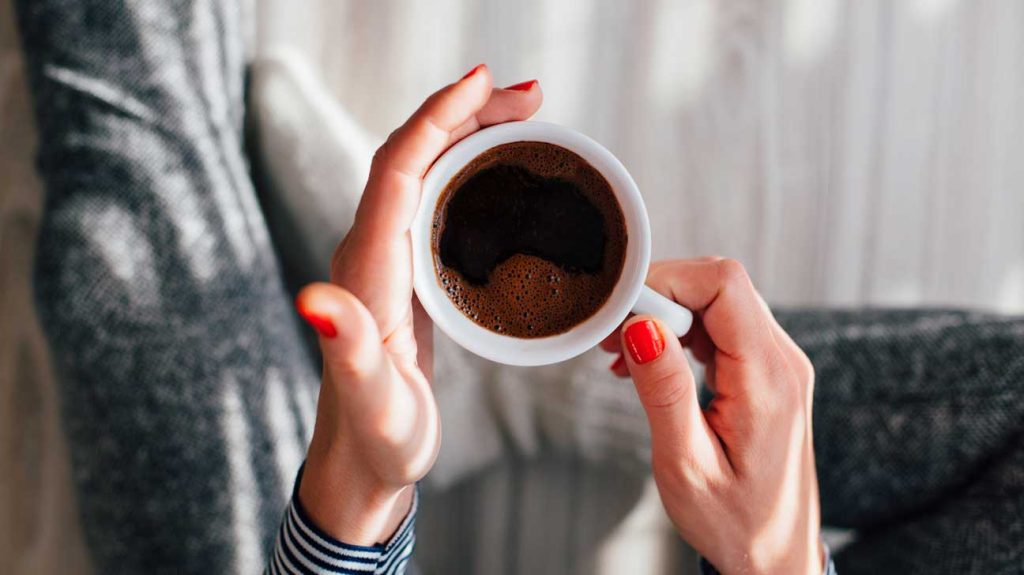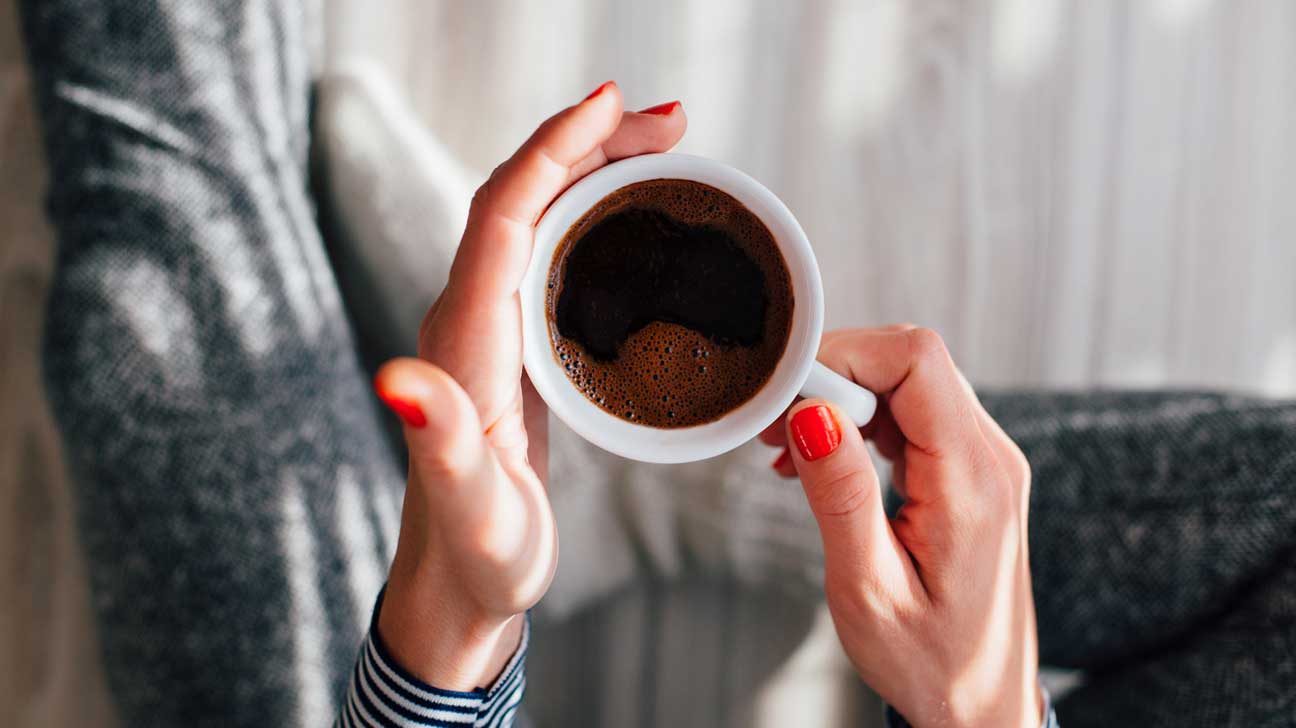You may have heard that coffee is a diuretic, but is it really, and what does that actually mean?
So let’s just answer the question directly without trying to turn a very simple yes/no question into, I was going to say War & Peace, but a more fitting analogy would probably be one of my (very) old school reports, which I can assure you were not full of praise, basically “All Kev wants to do is to play the fool & try to make people laugh”… er, yeah and?
So the simple answer is that yes, because coffee contains caffeine, and caffeine has a diuretic effect, meaning it causes the body to excrete more water than if you didn’t consume it.
The word diuretic often conjures up the word “dehydration”, but it’s important to realize that just because something has a diuretic effect, it doesn’t necessarily mean it will cause you to become dehydrated, there’s quite a bit more to it than that.

What Is The Diuretic Effect?
If you’ve ever wondered why you sometimes need to pee more often than at other times, this is the diuretic effect, which simply means an increase in the production of urine, which removes excess sodium and water.
Diuretic substances include:
- Caffeine
- Alcohol
- Medicines such as Furosemide or Bumetanide
Certain natural foods also have known diuretic properties, including:
- Celery
- Watermelon
- Asparagus
- Cucumber
- Cranberry juice
Is Coffee A Diuretic?
Is coffee a diuretic? Yes, it contains caffeine, and all caffeinated foods and beverages will therefore have a diuretic effect.
But before you start planning to drink a liter of water after every cup of coffee, you can probably chill out a bit when it comes to the potential of coffee to cause dehydration.
Firstly coffee is usually considered to be a mild diuretic.
The amount of caffeine usually consumed in a cup of coffee, is thought to cause a mild diuretic effect, so for example drinking one cup of drip coffee, Latte or Espresso in the morning isn’t likely to have a huge impact in terms of causing you to expel excess water for the rest of the morning that leads to you having to sprint to the bathroom multiple times.
Secondly, coffee contains water.
The concern about the diuretic effect is usually about dehydration, but this probably isn’t a major concern due to the water in coffee balancing out the expelled water.
Moderate consumption of caffeine, about 300 mg, or three cups of brewed coffee, doesn’t produce significant dehydration, research has shown.
Your body adjusts. You lose a some fluid, but you’re still hydrated by the water in the coffee.
So is coffee a dehydrator or not? Not in a way that really matters. You’re probably replacing more fluid than the caffeine in the coffee is going to cause you to expel.
So, your fluid needs are safe in a day, power up your espresso machine, and enjoy – in moderation of course :-).
How Much Coffee To Drink Before Your Body Dehydrates?
Remembering that the diuretic impact of the caffeine in your coffee is likely to be balanced out by the fluid you’re drinking in the coffee, we don’t need to worry that drinking coffee is going to instantly drain your body fluid like a leaky faucet.
In fact, many studies on caffeine ingestion and fluid balance found no significant dehydrating effect with moderate caffeine intake.
The diuretic effect of caffeine is mild on human body, and coffee contains water.
So the thing to really consider when it comes to caffeine and dehydration, would be the caffeine in foods that aren’t being balanced out by water.
It’s very common to drink water with coffee, for example, but would you naturally think about pouring yourself a large glass of water each time you eat chocolate?
100g of dark chocolate can contain up to about 80mg of caffeine, which is about the same as a 250ml can of Red Bull.
This may be slightly less than the average 95mg of caffeine in a cup of brewed coffee, but of course there’s no water being consumed with chocolate, unless you always force yourself to chug water when you eat chocolate.
How Do I Know If I Am Dehydrated?
If you’re concerned about the diuretic effect, that may mean you’re concerned about dehydration, which you probably should be, hydration is very important – although, as my nutritionist told me, it’s not all about hydration, it’s also about balancing electrolytes.
If you’re wondering why I have a nutritionist, a while ago I just couldn’t figure out why I couldn’t lose weight, so I sought out an expert, and to say it was worth it would be an understatement!
What she really did was to educate me about diet, over the period of about three months, which included providing a customized meal plan, and explaining the reason for each meal on the plan.
When it came to hydration, she was really keen for me to understand that this doesn’t just mean throwing back water like there’s no tomorrow, it doesn’t quite work like that.
She gave me a few examples (she’s professional so she didn’t include names of course) of pro athletes she’s worked with who had actually tried to bulk up on water before an event, and couldn’t understand why they felt terrible.
Just knocking back a tonne of water can reduce the sodium in your blood, causing a potentially very dangerous condition called hyponatremia, which means too little sodium in your blood.
So she encouraged me to take a more balanced approach to staying hydrated, just stay hydrated throughout the day by regularly drinking relatively “normal” amounts, of water, and to just be aware of how hydrated I am, or am not.
Your body will give you clues that it’s running low on fluids. Here are some of note to watch out for:
Dark Urine
If your body isn’t making up for lost fluid, you’ll probably notice your pee changes colour.
If you’re well hydrated, you’ll usually notice your urine is fairly clear, maybe slightly yellowish. As it becomes a darker yellow colour, through to amber, that’s a sign of mild to moderate dehydration, and if it goes really dark, like a brownish orange colour similar to how it may look first thing in the morning after waking up, that’s considered to be a sign of more severe dehydration.
Dizzyiness Or Lightheadedness
Feeling dizzy or lightheaded? This could be dehydration reducing your blood flow, and therefore reducing oxygen delivery.
When your body is low on fluids, your blood volume decreases, and it takes longer for oxygen to be transported to your brain.
You may experience reduced energy level available to handle your day, with a general sensation of being zoned out and not able to focus.
Dry Mouth & Bad Breath
Dehydration can cause the body to hold onto fluid for more essential functions, and to therefore produce less saliva.
Fatigue And Headaches
If you wake up in the morning, and just drink coffee, then find a bit later in the day you’re starting to feel unusually tired and/or experiencing headaches, this could simply be that your morning coffee alone wasn’t enough to rehydrate you after a night’s sleep.
Yeah, the water in your coffee probably replaced what you lost from caffeine’s diuretic effect, but don’t forget, if you sleep for 8 hours, your body hasn’t taken on any water in that time, so if all you drink in the morning is coffee, which is likely to cause the displacement of at least some of the water it contains, this isn’t necessarily going to be enough to get you properly rehydrated.
